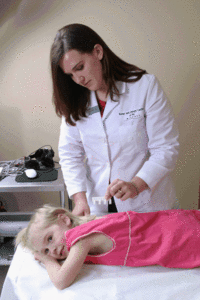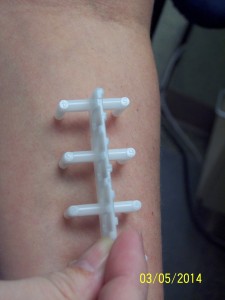 Based on a detailed history and thorough examination, we may advise skin testing or blood testing to determine what you are allergic to. Skin testing offers the highest level of sensitivity and specificity for most patients. This type of testing may take a little bit longer, but it is clearly superior to other methods.
Based on a detailed history and thorough examination, we may advise skin testing or blood testing to determine what you are allergic to. Skin testing offers the highest level of sensitivity and specificity for most patients. This type of testing may take a little bit longer, but it is clearly superior to other methods.
For patients that cannot do skin testing, we offer blood testing. With a single blood draw we are able to assess all you inhalant and ingest ant (food) allergies. Our lab is COLA and CLIA certified and we are constantly reassessing the performance of our facility.
The methods we utilize will indicate not only what you are allergic to, but also how allergic you are. This allows us to start immunotherapy at a dose tailored to you, which also allows us escalate immunotherapy doses more quickly and safely. During the skin testing session, the nurse takes the time to educate you on allergy and counsel you on environmental measures.
Once we determine what you are allergic to, we can attempt to minimize exposure and possibly diminish your sensitivity. See treating allergies for more information.
Total IgE
 Diagnosing Food Allergies
Diagnosing Food Allergies
Strategies include elimination diets and oral challenge eating.
Diagnosing Food Allergies in Children
Diagnosing food allergies in children is based on a history of the child’s experience.
Diagnosing Mold and Fungal Allergies
Skin testing helps to determine what is causing the reaction.